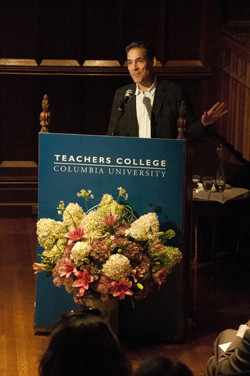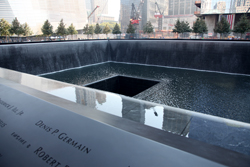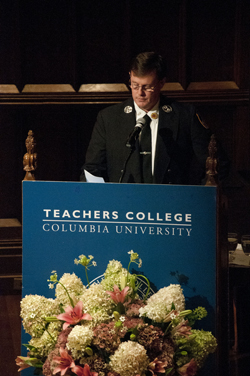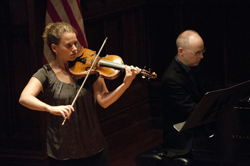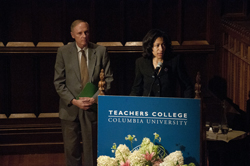Filed Under > TC Community
'We Are Stronger Than We Realized'
At a TC remembrance ceremony for 9/11, distilling lessons from New York City's darkest day
Recalling “that bright, cloudless, beautiful September morning that suddenly turned so terrifyingly dark,” President Susan Fuhrman opened Teachers College’s 9/11 remembrance ceremony in Milbank Chapel by invoking Roman emperor Marcus Aurelius’ observation that “even though the whole world deafens you with its roar and wild beasts tear your body apart like a lump of clay … nothing can bar a [steady mind] from correct judgment, nor defeat its readiness to see the benefit that all things bring.’
“Even something as terrifying and destructive as the mass murder that took place 10 years ago in this city is a teachable moment,” Fuhrman said, setting the tone for ensuing hour, during which psychology faculty member George Bonanno delivered a talk titled “Out of the Ashes: Lessons Learned from Research after 9/11”; members of the TC community were invited to speak the names of people they knew who died in the 9/11 attacks; and the audience listened to a performance of “Meditation,” a duet composed by TC Music Education faculty member Richard Pearson Thomas (piano) and performed by Thomas and Music Education master’s degree student Katie Kresek (violin).
View the recording of the event: September 11th, a Tenth Anniversary Remembrance
